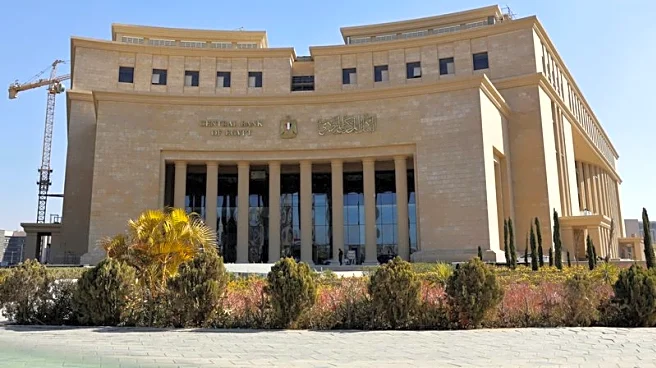What's Happening?
A federal appeals court in Chicago has denied the Trump administration's request for an emergency stay of a district judge's order that prevents the deployment of National Guard troops in Illinois. The 7th Circuit U.S. Court of Appeals granted a temporary stay on part of the order related to the federalization of the National Guard. The ruling maintains the temporary restraining order issued by U.S. District Judge April Perry, which halted President Trump's plan to send federalized National Guard troops to Chicago for immigration enforcement under 'Operation Midway Blitz.' The Department of Justice argued that the order impinges on the Commander in Chief's authority and endangers federal personnel.
Why It's Important?
The legal battle over the deployment of National Guard troops highlights tensions between federal authority and state rights. The decision to block Trump's plan reflects concerns about the use of military forces for domestic law enforcement, particularly in politically charged contexts. This case underscores the importance of judicial oversight in maintaining constitutional boundaries and protecting civil liberties. The implications for U.S. politics include potential challenges to executive power and the role of the judiciary in checking government actions. The outcome may influence future policies regarding the use of federal forces in domestic situations.
What's Next?
The legal proceedings are expected to continue as the Trump administration seeks to overturn the ruling. The appeals process may involve further scrutiny of the administration's justification for deploying National Guard troops and the broader implications for federal-state relations. Stakeholders, including state officials and civil rights groups, may advocate for measures to prevent the militarization of domestic law enforcement. The case could set a precedent for future disputes over the use of federal forces in states, impacting policy decisions and governance strategies.
Beyond the Headlines
The case raises ethical and legal questions about the balance between national security and civil liberties. The deployment of military forces in domestic contexts challenges traditional norms of law enforcement and governance. The ruling reflects broader concerns about the militarization of public spaces and the potential erosion of democratic principles. This discourse may lead to a reevaluation of the role of military forces in domestic affairs and the need for clear legal frameworks to govern such actions.










